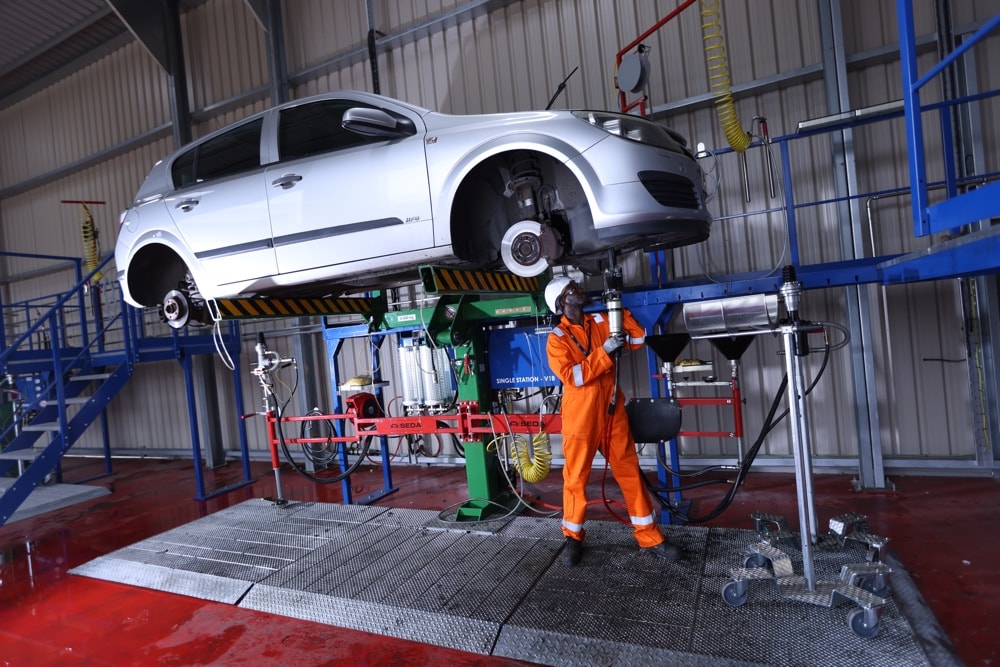CHOOSE
A DIFFERENT TERRITORY

Rarely a week goes by without news reports or studies calling for an immediate scale-up of climate action, as the global warming situation worsens rapidly.
Recently, the World Meteorological Organisation said global temperatures are now more likely than not to breach 1.5 degrees Celsius (2.7 degrees Fahrenheit) of warming within the next five years1. The UN agency has warned that this would represent a marked acceleration of human impacts on the global climate system, sending the world into “uncharted territory”2.
A circular economy is part of the solution to our global climate emergency, ensuring that nothing goes to waste, and everything has value.
David Holdcroft, EMR Director says:
“Historically, we take materials from the Earth, make products from them and eventually throw them away as waste. This linear model creates endless waste and unsustainable demand for virgin raw materials. The solution is to move to a circular economy where products and materials can be used for longer and made into new products after use.
“With an estimated 40.8 million3 vehicles on UK roads, the recycling of these vehicles, when they reach their end of life, can result in the recovery of vital materials to make tomorrow’s products, helping us to save the planet and reduce the demand on the Earth’s depleting resources.”
Global leader in sustainable materials, EMR, is one of the most advanced end-of-life vehicle (ELV) recyclers in the UK, with the largest network of Authorised Treatment Facilities (ATF). Over the past decade, EMR has made substantial investments into pioneering technology and strategic partnerships to ensure cutting-edge facilities and capabilities, that enable it to recycle up to 95% of all vehicles.
“EMR has developed advanced separation processes, which means we can cut the quantity of material from our sites that ultimately goes to landfill. Equally, it ensures that as much of the steel, aluminium, copper, plastic and other materials used to build a modern vehicle are recovered and re-used within a sustainable, circular supply chain,” adds David.
Ferrous metals - such as iron and steel, for example - count for up to 65 percent of the total materials in most cars and, through EMR’s separation process - which includes powerful magnets - these metals are extracted and sent straight to steel mills for re-use in the next generation of vehicles, consumer goods or in construction.
“Being a globally leading metal recycling company, we recycle an impressive 10 million tonnes of metals and plastics each year. However, our commitment to zero waste goes beyond just metal. Our state-of-the-art plastics recycling division, MBA Polymers UK, processes Automotive Shredder Residue (ASR) from end-of-life vehicles into high quality recycled polymers to be used in tomorrow’s vehicles and products. These are all materials that, without intervention, would go to landfill or incineration,” adds David.
As the market leader for vehicle recycling in the UK, EMR is constantly improving its processes and equipment to maximise recovery for vehicles on the road today. EMR has a keen focus on the future EV revolution and achieving zero waste, working directly with many of the world’s biggest vehicle manufacturers to come up with solutions.
David explains: "At EMR, we’re constantly looking at ways of recycling vehicles to an even higher standard. The automotive industry is being transformed by the development of new, high-performance electric vehicles (EVs) and, as these vehicles eventually reach their end of life, it is vital that we find a sustainable and efficient way to recover and reuse these materials.
"Along with the four Rs of recycling - reduce, reuse, recycle, recover - we believe that there is a fifth component - redesign. I call this work ‘Designed for Recycling’. It's crucial that the vehicle manufacturers and recyclers work together from the outset - at the design stage - to ensure a sustainable way that materials can be turned into something new at their end of life.
“Our knowledge and expertise mean we can currently recycle up to 98% of vehicles, but the vehicles themselves are not designed and built in a way that generally supports this. So, we are working ever more closely with our OEM partners to support their designs for future decades of production to ensure recycling is factored in at the concept stage.”
By continuing to collaborate with vehicle manufacturers and suppliers, EMR is firmly in the driving seat to accelerate innovation and sustainable change in the automotive industry, ensuring consumer confidence in the next generation of cars and creating a more positive environmental impact.